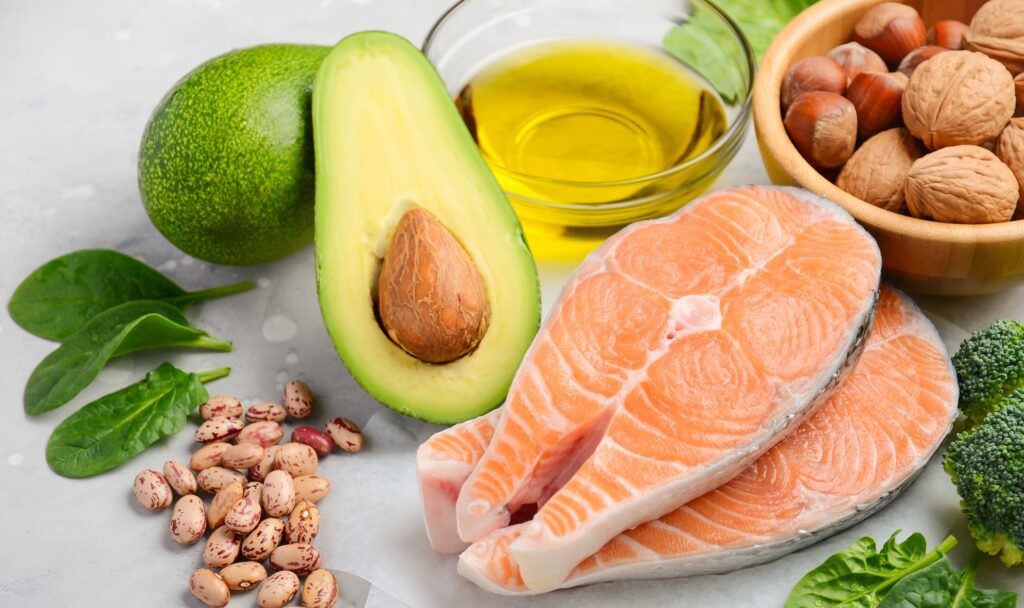Choosing Heart-healthy Fats
Author : Heather Lochmann MS, RD, LDA well-balanced diet includes healthy sources of fat, which should comprise 20-35% of total daily calories. For example, a person following a 2,000 calorie diet could have 44-77 grams total fat per day.
There are three categories of fat: unsaturated, saturated and trans. The first consists of monounsaturated and polyunsaturated. These include the essential fatty acids that the body can’t make — omega 3 and omega 6 fatty acids. Food sources include nuts, seeds, avocados, fatty fish and oils like canola and olive oil. These unsaturated fats can reduce low-density lipoprotein (LDL) cholesterol, triglycerides and cardiovascular as well as all-cause mortality when they replace saturated fats in the diet. A large portion of the daily fat intake should come from these healthy sources of unsaturated fats.
Saturated fats can increase LDL cholesterol and risk of cardiovascular disease. It is found in fat that is solid at room temperature such as butter, high-fat meat and dairy products, coconut and palm oils as well as many dessert items. The American Heart Association recommends less than 6% of daily calories to come from this type of fat, so if following a 2,000 calorie diet, that would be less than 13 grams per day.
Trans fat, also called partially hydrogenated oil, was created by adding hydrogen to liquid oils, thus making them more solid at room temperature. Trans fats can negatively affect heart disease risk by increasing LDL cholesterol AND reducing the good high-density lipoprotein (HDL) cholesterol.
Although products have started to cut back on use of this oil since it was required to be listed on food labels in 2006, there are still numerous products with it listed in the ingredients. Manufacturers can claim that products contain 0 grams of trans fat if the per serving amount is less than 0.5 grams, but if partially hydrogenated oil is in the ingredients, then measurable amounts would be present if the entire package is consumed. Ideally 0 grams per day is recommended.






